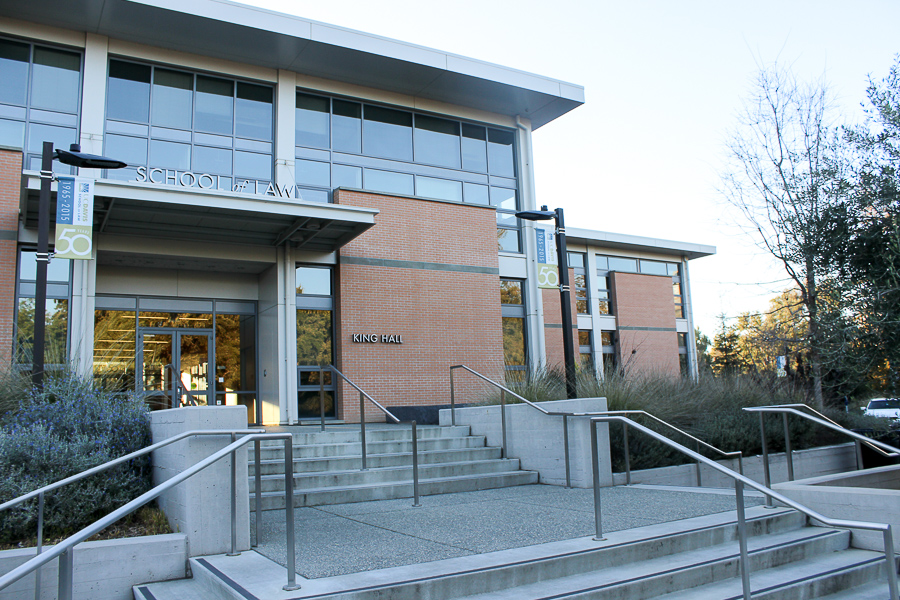
Guy-Uriel Charles speaks at King Hall
Duke University professor of law Guy-Uriel Charles delivered the annual Edward L. Barrett Jr. Lecture on Constitutional Law at King Hall on Feb. 6. Charles spoke on voting rights law and policy in the United States and analyzed the history and future implications of the Voting Rights Act of 1965 and the 2013 Supreme Court case Shelby County v. Holder.
Charles emphasized that his lecture, “Race, Exit, and the Voting Rights Act,” would answer two overarching questions related to voting rights law:
“First, what has been the key to the success of the voting rights model in the last fifty years?” reads an informational page about the event on the School of Law website. “Second, where should voting rights law and policy go from here?”
Throughout his speech, Charles cited the Shelby case as a landmark step backward for voting rights.
“It functionally neutered what former Solicitor General Donald Verrilli called an iconic statute in part of American history,” Charles said.
In Shelby County v. Holder, the Supreme Court struck down a crucial provision of the Voting Rights Act, ruling that it was unconstitutional to require state and local governments to earn federal approval before changing voting laws. This provision targeted specific states and areas that had a history of discrimination against certain communities of voters.
“One result has been the passage by many state legislatures of a number of voter ID laws and other measures that disproportionately impacted voters of color,” said the dean of King Hall, Kevin Johnson.
Charles agreed that the Supreme Court’s decision in Shelby had very tangible consequences for voters nationwide. According to Charles, following the ruling, certain states passed a number of legal measures that could prevent minority communities from voting.
“Following the Court’s decision in Shelby County, [North Carolina] rushed through, in what seemed to have been the heat of the night, an omnibus voting rights law that eliminated same-day registration, adopted a stricter voter ID requirement, limited voting hours, made it harder for young people to vote, et cetera and et cetera,” Charles said.
Later, he mentioned that “it has now become almost reflexive to cite Shelby County for all that perhaps ails voting rights law and practice.”
However, Charles noted that there were positive consequences of the Shelby County case. He observed that the Supreme Court’s decision sparked a revolution against new laws that had the potential to suppress the vote.
“Shelby County has become essentially a crie du coeur — a symbolic rallying cry for voting rights activists,” Charles said.
Charles observed that the implications of the Shelby County case will be difficult to combat, let alone reverse. He concluded that although Shelby County was a big step backward for voting rights law, the nation must move forward and continue to fight for voting rights.
“As a consequence of [Shelby County], voting rights policy will have to break away from its past and embrace its future,” Charles said.
Written by: Jacqueline Moore — campus@theaggie.org




